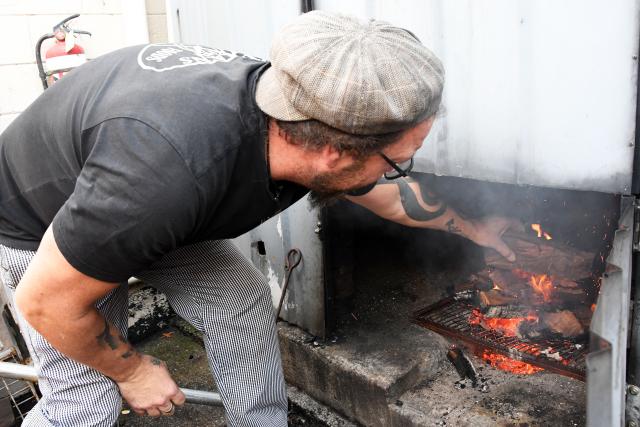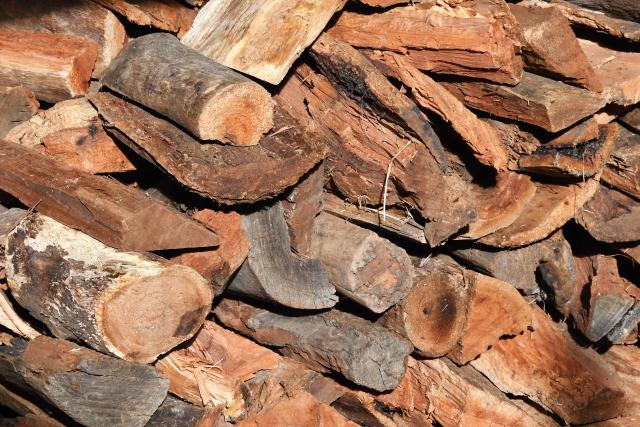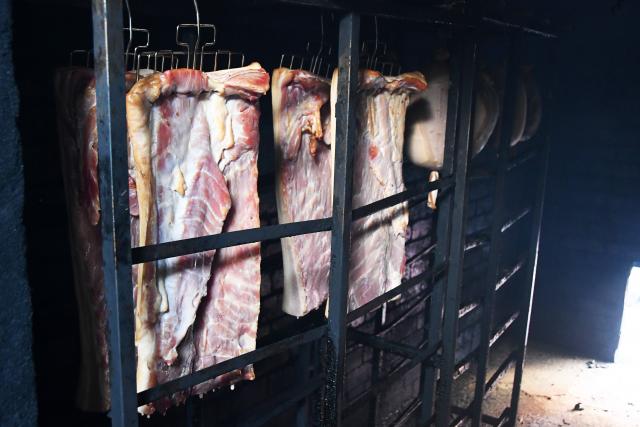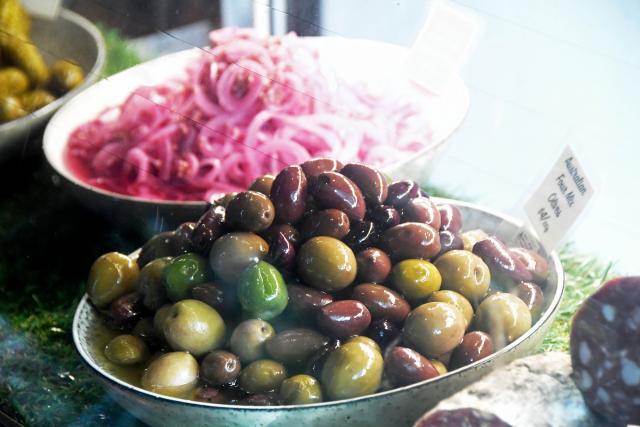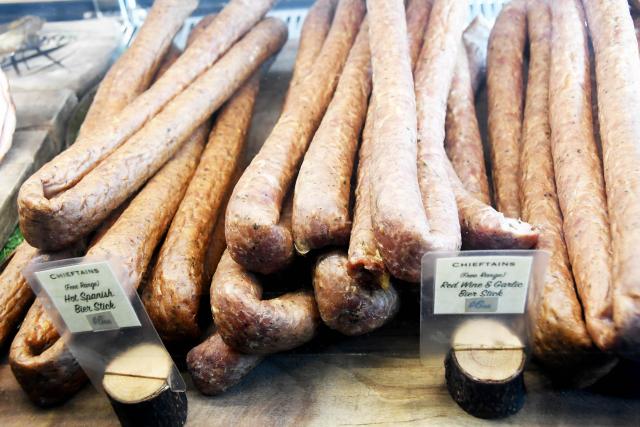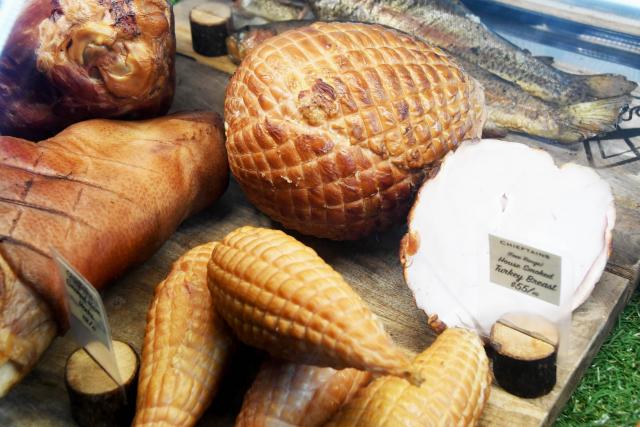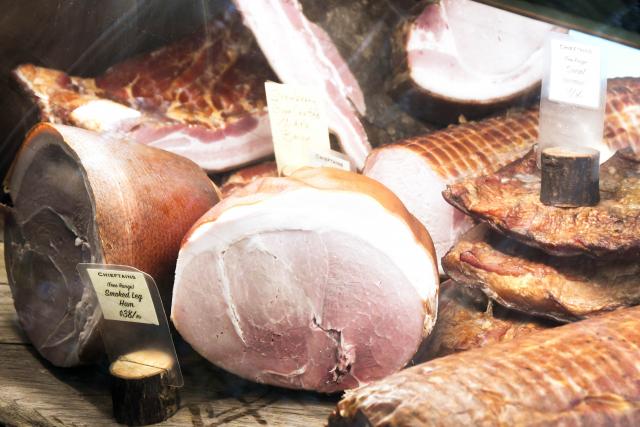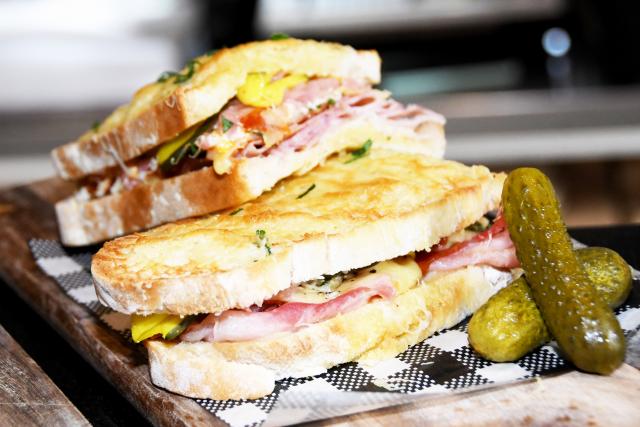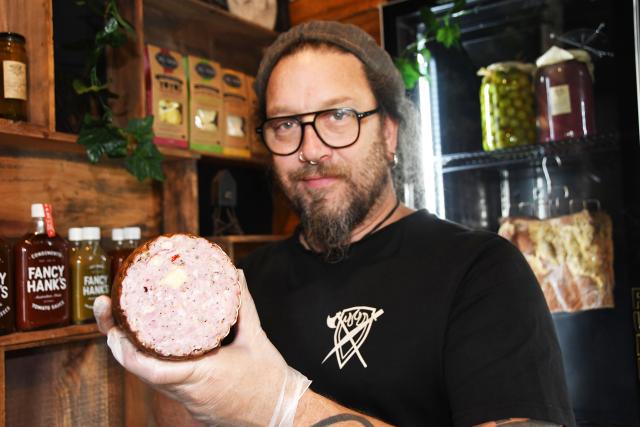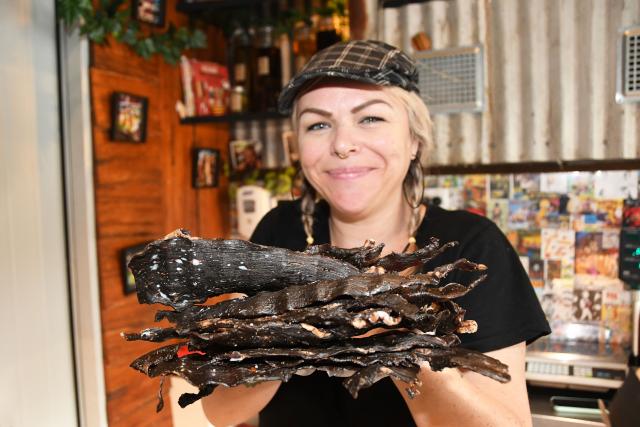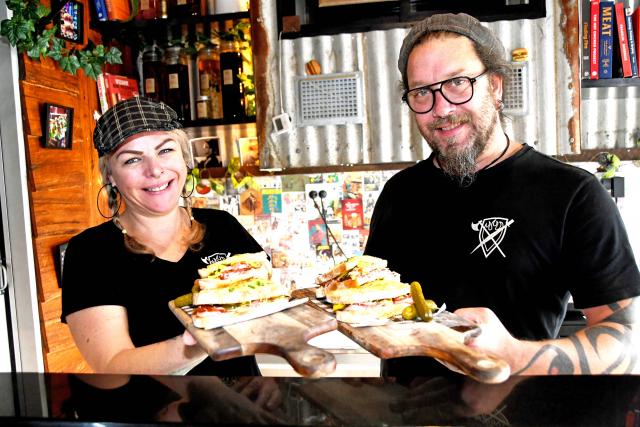
Next to the fish and chip shop and a few buildings down from the bakery and the bank in the small town of Cockatoo,, you’ll find a boutique smokehouse that has locals hooked on its selection of house smoked meats and cheeses. Gazette journalist ELEANOR WILSON ventured down to Chieftains Smokehouse to learn about the magic that goes into smoked meat.
BREAKOUT QUOTE: “Failure is the key to our success.”
Sándor Bende admits it was a “huge gamble” to open an artisanal smokehouse in the quiet town of Cockatoo.
“It was probably a bit boutique-y for the locals when it first opened, this has been a butcher here forever,” Sándor’s wife and co-owner Sarah Lee said.
Sándor and Sarah purchased the butcher shop eight years ago with grand visions for their smallgoods business.
“We just wanted to create something that we wanted to go to,” Sándor said.
“So we went everywhere, to every smallgoods delicatessen to see what was missing and we just wanted to come up with that secret little thing you don’t get anywhere else.”
That niche, they found, was creating everything from scratch…right down to using individual ingredients to create their own brine.
“We don’t use any packet mixes here, so nothing comes out of a packet,” Sándor said.
“We’ve just got herbs and salt and spices, so we have freedom and we aren’t limited to what comes out of a packet.
“We don’t know of any other smokehouses or butchers that will take the time to premix their ingredients from scratch,” Sarah said.
Their brine consists of Murray River salt – lower in sodium so you don’t get thirsty – sugar, coriander and mustard seeds, and bay leaves from the bay trees out the back.
Mondays and Tuesdays are production days at Chieftains – where you can find them smoking hundreds of kilograms of ham, bacon, turkey, chicken, pork, pastrami, trout and sausages.
It takes seven days to make a piece of ham, he explains.
“We start with the trimming, brining, netting, then it goes in brine for seven days.
“Then we pull it out, dry it. Then we cook it, the ham cooks for eight hours so you always want to try to get on early in the morning otherwise it’ll be a late night.”
The smoking process is facilitated through Chieftains’ custom built smokers, which are fed with hand cut local red gum wood – the holy grail for smoking meat.
“I only ever use red gum – it burns hot and it gives everything a really good colour.”
Settling on red gum came after years of experimentation.
“We started off just with mountain ash and messmate and stuff like that but it would just cook for too long and it didn’t really give good colour.
“We’ve experimented with fruit woods and stuff like that but I found they smell nice when you burn them, but they don’t really do too much.”
Experimentation, and the inherent failures that come with it, has been pivotal to the success of the business, he says.
“If we come up with something new, people will buy it because they know if it’s no good it won’t end up in the front.
“There’s been plenty of stuff that doesn’t end up out the front. We’ve made heaps of terrible sausages, heaps of terrible ham.
“Failure is the key to our success.”
It is hard to pinpoint exactly where Sándor’s love affair with smallgoods started.
Part of it could be in his blood.
Growing up in a Hungarian household, he was raised on salami and smoked meats, potatoes and cabbage.
But it wasn’t until he met a “crazy Polish Russian smallgoods maker” at Noosa markets about 12 years ago that his fascination with meat smoking really took flight.
Sándor had been a painter and decorator since he was 15 – a job he admittedly hated and was desperately looking for a way out of.
“I just wanted to get into cooking, I’ve always loved cooking. So when I got to Noosa I swore that I wouldn’t paint again, so I just got jobs in kitchens,” he said.
“I saw him at Noosa markets and his stuff was unreal, so I just kept going back and pestered and pestered him for a job.”
Sándor’s pleas eventually paid off, when the man offered him a job working under him as an intern.
“While he was amazing as a smallgoods maker, he was an absolutely horrendous businessman, so I would never get paid and when I did get paid he’d pay me in 20 cent coins sometimes.
“But I didn’t care. His operation was amazing and I would work 12 to 14 hour days for him and I just absolutely fell in love with it.”
It was there that he coined the chieftain sausage – an ode to the seven chieftains of the Hungarian empire – described by Sándor as “horrible barbaric Europeans who would chop people’s heads off with big swinging swords”.
Concerned by the wastage of leftover sausage meat, Sándor began combining the excess meat.
“I just started mixing them together, I’d mix some Russian sausage with the Polish sausage with the Italian sausage and came up with the chieftain [sausage].
“I added a little bit of red wine in there to signify all the bloodshed on the battlefields from all these different countries who had been fighting with each other.
“I just wanted to do something completely different.”
Returning to Melbourne eight years ago with a determination to open his own smokehouse, a quick google search of ‘cheap butcher shop for lease’ led him to McBride Street, Cockatoo.
“I used to live just down the road, I used to come down and buy my meat from here when I was living here.
“It’s quite synchronistic that I ended up back here.”
Two years later, he and wife Sarah Lee opened their second store – Chieftains Fine Foods in Tecoma.
Sarah’s passion project, there you can find a menu filled with mouthwatering sandwiches and menu items using Chieftains’ range of products.
“I knew nothing about anything until Sándor and I got together basically, I’ve never worked with food or in a commercial kitchen and now I’m running a deli restaurant down the hills,” she said.
“I’m passionate about Chieftains and the product because genuinely the entire ethos behind it is pretty flawless really.”
A large part of the business model revolves around ensuring their product is completely free range, locally sourced and zero waste.
They use Borrowdale Free Range pork and ham, Hazeldenes’ chicken and Gippsland grass fed beef.
“Right off the bat when we started there were two things we wanted, which was no packet mixes in anything and everything had to be free range and as ethical as possible,” Sándor said.
“We only eat free range at home, so why would we compromise and drop our morals here? It costs us heaps more but you can taste the difference in the product,” Sarah added.
Extra cuttings and vegetable trimming get made into flavoured salts, stocks and terrines.
“It’s a zero waste policy which is pretty good, there’s very little that goes to waste,” Sarah said.
Chieftains Smokehouse will feature on Channel Nine’s Postcards program on Sunday 4 June.

